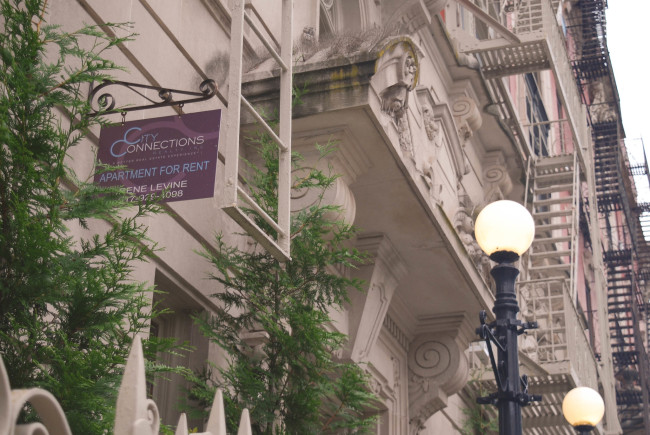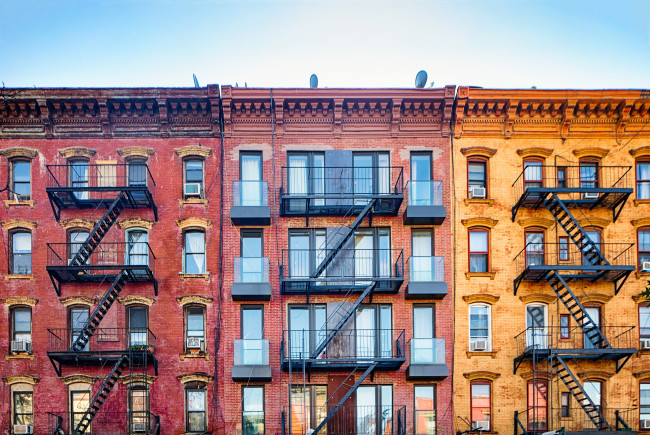4 reasons you could be turned down for renter's insurance in NYC
- Prior claims can prevent you from getting standard insurance coverage
- A basic policy may be denied if your apartment is in a flood risk area
- If you are rejected, you can still get insurance at a higher cost

Prior claims can prevent you from getting basic renter's insurance.
iStock
Buying renter’s insurance may be easier and more affordable than you think: A standard policy in New York City is about $300 a year, but there are a few circumstances where you might be declined renter's insurance.
If you are rejected it’s because you are deemed high risk. A low credit score won't stop you from getting renter’s insurance but if you have prior claims or live in an area prone to flooding, you may be denied.
Many uninsured renters are under the mistaken impression that their landlord’s policy covers their possessions—it does not. Without your own insurance, your personal property is not covered if there is damage or theft. You may also be liable if someone has an accident in your apartment and sues you for medical or hospital expenses.
In most cases you won’t have to remain uninsured, you can get insurance but it will cost you more: You will have to pay higher premiums or a higher excess (the amount you have to pay if you decide to make a claim on your policy).
Below are reasons why you may be denied renter's insurance.
1) You have multiple prior claims
If you have two or more claims in a three-to-five-year period, you may not be able to get a standard policy, says NYC apartment insurance broker Jeffrey Schneider, president of Gotham Brokerage (a Brick Underground sponsor). “Sometimes it’s not even your fault—if you’ve lived in a part of the country where there’s hurricanes or storms,” it may be difficult, he says.
Multiple prior claims can be an indication that you will have future claims and that can make insurance companies wary of insuring you with a basic policy.
Even if coverage is denied, you will still be able to get insurance. “You can almost always get coverage at a higher price,” Schneider says.
2) The building is in flood risk area
To be protected from flood damage requires a separate insurance policy but in most cases, a standard insurance policy will cover damage from severe wind. Even so, strong winds can create flooding, so you may be rejected for basic insurance if you live very close to the water. “Sometimes it's difficult to tell where a flood ends and a windstorm begins,” Schneider says.
Areas deemed hazardous in NYC might include properties in Coney Island, the Rockaways, and other areas of Brooklyn and Queens that are right on the water. Your chances of being denied basic coverage are reduced if the apartment is on a high floor where there’s less risk of water damage from a windstorm.
3) The insurer’s requirements are not fulfilled
If you don’t fulfill the requirements set out by the insurer, your application for standard coverage may be rejected. Schneider says this situation might arise if a landlord allowed a tenant to install an air conditioning unit but there was no bracket for it. If the insurer finds out, they’ll ask for a bracket to be installed to support the unit, and if this isn’t done, they’ll refuse to cover you or cancel the policy.
If you are going to sublet your place, that could also result in you being denied coverage. Landlords need a different policy from the standard rental coverage.
4) The condition of the apartment makes it difficult to insure
Insurers want to see that the apartment is primarily the place where you live, not a working space, although it can be that too. In the unlikely event your apartment is in really bad condition, you may not be able to get basic renter’s insurance. “If the wiring is old, or there are leaking pipes that could be an issue,” Schneider says.
Getting basic coverage might also be an issue if the carrier found out that wiring had been updated but the circuit breaker had not. An overloaded electrical circuit is a risk.
You Might Also Like




























